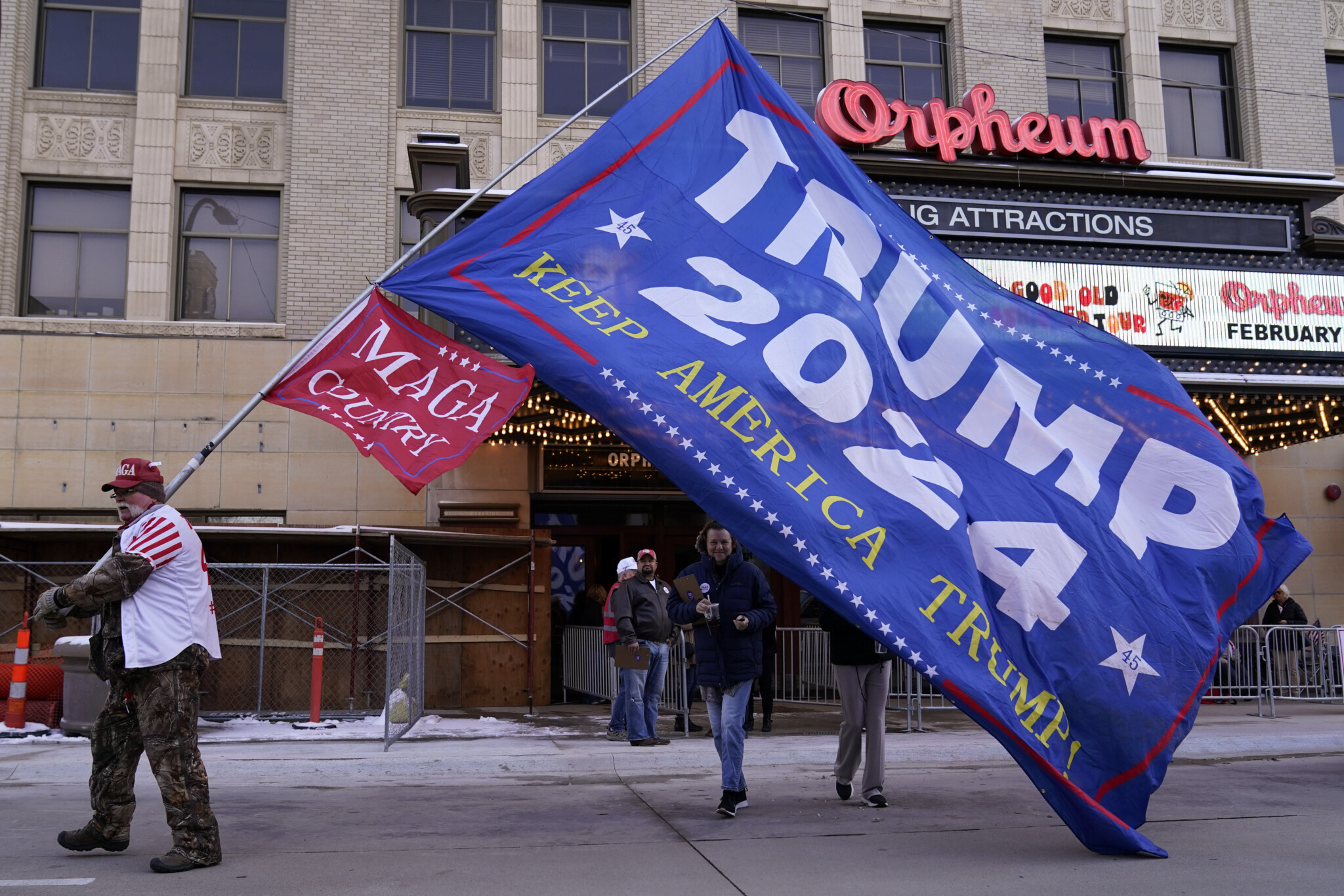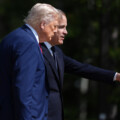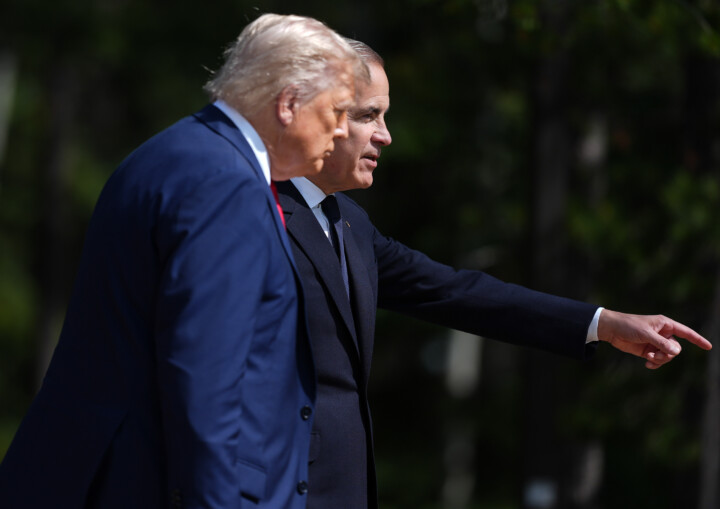American culture is a meme
The United States is an absolutely massive cultural force. We see this not just in its corporate culture, film, fashion, media, universities, and other cultural institutions, but also in the ways that countries around the world seem compelled to recreate cultural phenomena that are unique to America in their own countries. Love it or hate it, American culture is probably the most copied culture in the world.
This is true for its political culture as well, for good and ill. Just as many nations attempt to copy the American constitution or mimic its flag, countries around the world have gained a habit of looking to America and, consciously or otherwise, copying its movements in their own contexts. The memetic global spread of the Black Lives Matter marches after the death of George Floyd in 2020 is a prime example.Ottawa, London, and many other places around the world saw its citizens pick up American cultural responses and copy them in their own streets, in their legislatures, and in other cultural institutions, and this leaked its way into policies.
It’s not as if Canada or the U.K. don’t have their own history of racial tensions and relations—they do. It’s just that the cultural and historical context of race in Canada and the U.K., for instance, is vastly different than that of America. Ignoring or forgetting the unique cultural and historical circumstances of one’s own place runs the risk of moving forward policies that don’t suit the unique problems you face, and may actually do more harm than good.
This is the analogy through which we should think through our evaluations of populism and the political realignment of the working class in Canada and the U.S., and indeed, around the world. Context matters; history matters. It always does, and we forget it at our peril.
American populism FTW
The most articulate voices for the American working class realignment, are, in my opinion, Oren Cass, Reihan Salam, and Ross Douthat. And while they offer slightly different diagnoses and recommendations for the working class in their respective books, all three agree that the Republican Party needs to free itself of the Reaganite orthodoxy of the 1980s which had dominated the party’s intellectual, donor, and activist class well into the 2000s and embrace a policy suite more suited to the needs of American working families. Cass’ core concern, and one that I think is shared by Salam and Douthat, is summed up in a quote from Cass’s book The Once and Future Worker:
the durable growth that produces long-term prosperity is the emergent property of a virtuous cycle in which people who are able to support their families and communities improve their own productivity and raise a subsequent generation to accomplish even more. [And this virtuous cycle will only turn if it is built on] a foundation of productive work through which people find purpose and satisfaction in providing for themselves and helping others.
When I reviewed that book for Comment in 2019, I called it a “Productive Manifesto” and applauded the conservative rediscovery of what my own Christian democratic tradition had always considered the heart of the economy: the human person who, through their labour, is able to exercise their capacity to release the potential embedded in the material world to create and contribute to their families and the building of a rich, humane, culture.
Since Cass wrote the book he has lived that productive manifesto and started a policy think-tank that, arguably, provided some grist for the policy mill of the Grand New Republican party which not only won but won because of multi-ethnic, working-class, voters. Oren’s book has plenty of recommendations that fit more stereotypical conservative economic orthodoxy (see his chapter on balancing environmental and employment outcomes), and other items, like re-envisioning educational funding to support the working class are worthwhile both in the U.S. and in Canada.
But it’s his support for nationalist tariffs and industrial policy as a means of tilting the balance of industry back toward providing well-paid work for workers that is causing many to part company with him. Cass’ argument is that decades of globalization and free trade that was justified by saying that it would deliver cheaper goods for Americans has hollowed out the “foundation of productive work” that middle-class America is built on.
The lack of decent, well-paid work, has, at least in part, contributed to the breakdown of America’s working class, many of its cities, family structure, health, and many of the conditions of polarization and despair that plague America’s working class. His desire to place the state’s thumb directly on the market through the types of tariffs we see Trump threatening presently, and through industrial policy aimed at reshoring certain industries, is very much out of step with the conservative movement many Americans and Canadians are used to.
Canadian populism ≠ American populism
Conservatives who are sympathetic to an economic vision that is focused on the working class might be forgiven for wanting to copy and paste the American vision into the Canadian context. But this would be a mistake because while many of the concerns of the Canadian working class are shared with their American counterparts (particularly their distrust of elite institutions, including universities, media, law, and cultural establishment), the economic realities that have affected the working class in Canada are markedly different in nature than they are in America.
Many of the items that Cass, Salam, and Douthat sought as policy remedies for the working class in America—family allowances or parental leave, for instance—are well established in Canada. And, frankly, if you look at significant portions of our economy, we are kind of living the dream of a realignment conservative in the U.S. You would expect populism to be a non-factor here.
But that assumes that all countries are like the United States, and they’re not. We’re not.

A Trump supporter carries a flag, Oct. 29, 2023, in Sioux City, Iowa. Charlie Neibergall/AP Photo.
Populism is a factor here for many of the same reasons in the U.S. on the cultural side.Our media elites are massively out of touch and controlled by a small cabal that lives and talks with one another, and seems to be as trustworthy as any other ideological outlet you can find on the internet; our universities appear to be unable to make what should be relatively clear moral judgments, and also don’t seem to prepare large portions of students for work, causing us to ask why we spend so much money on them; our courts make decisions that are out of step with their own past decisions and the facts; people who make environmental policy don’t appear to understand that, on the margin, a family with a minivan can’t afford a Tesla, and it doesn’t help when dad’s out of a job because of massive regulations on resources projects; our teachers unions seem to assume that major life decisions for children are best kept away from parents; our governments massively fund the one type of childcare used most often by lawyers while leaving PSWs working shifts with nothing…but these are all cultural matters for another piece another time. But on the economic side, while we have experienced job polarization, we also have many of the family and other supports that realignment conservatives in the U.S. offer as a means to provide a base for family vitality.
While Cass might be right about the imbalance in favour of the consumer in the U.S. (I’ll let him debate that within his own country), it is absolutely true that in Canada the imbalance goes the other way.
Whether it’s Volkswagen’s battery plants, or spaghetti factories in Brampton, Ont., there is nothing Canadian governments love doing more than taking care of producers in the name of creating jobs (or, more accurately, hypothetical jobs). I think it’s entirely plausible to suggest that, across a whole range of industries, the structure of our economy works against working families getting ahead. So many bills, for cell phones, the milk, butter, and cheese that we use to feed our children, chicken, flights home for Christmas, Christmas turkeys, banking costs, electricity, or housing are far higher than they need to be because the Canadian governments (both provincial and federal) have chosen the producer over the consumer.
Many Canadians, myself included, just look at their monthly bills, look at the ways in which associations and lobbyists for these groups secure protections from competition that would lower prices, and start reaching for their pitchforks. And that doesn’t include the array of other industries that aren’t directly connected with consumer goods—shipbuilding, aerospace, or infrastructure, for instance—that take our tax dollars to create jobs, but barely do that, and also fail to build us the ships and planes that we need to defend our own country. It’s tough to swallow getting dinged with tariffs because our money has gone to stuff the pockets of the Bombardiers, Irvings, and SNCs of the world while they in turn have failed to deliver the things we need to defend democratic institutions against global threats.
A realignment economic agenda in Canada will need to include measures that address these challenges, and insofar as it does so, it will not only look far different from its populist neighbours to the south, but far more like traditional free market economics than the heterodox strands that have been woven into the American populist agenda.
Politicians in Canada who hope to craft a multi-ethnic, working-class coalition will, of course, also need to address the deeply rooted sources of populism in culture, but when it comes to economics, at least in Canada, what’s old should become new again.










